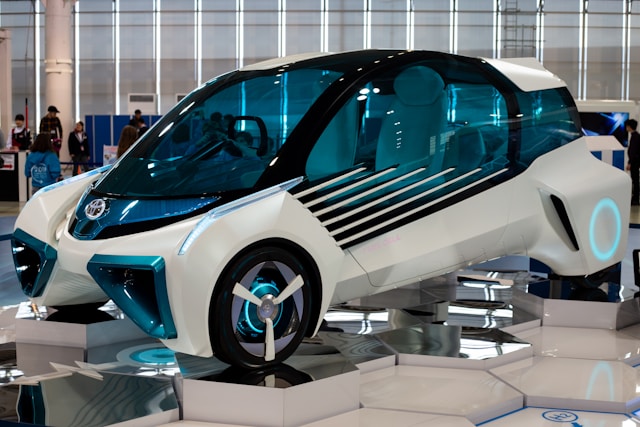
Japan's automotive industry stands as a paragon of engineering prowess, innovation, and reliability. From the bustling streets of Tokyo to highways around the world, Japanese cars are celebrated for their performance, efficiency, and cutting-edge technology. Here’s an exploration of why Japanese cars have earned a top spot in the global automotive market (also if you wanna know more about Japan and its culture, feel free to check this Japan specialised blog)
1. Engineering and Reliability
Japanese cars are synonymous with reliability and longevity. Brands like Toyota, Honda, Nissan, and Subaru have built a reputation for producing vehicles that stand the test of time.
Japanese manufacturers prioritize meticulous craftsmanship and stringent quality control, ensuring that each vehicle is built to last. It’s not uncommon to find Japanese cars with over 200,000 miles still running smoothly. This reliability is a key reason why models like the Toyota Corolla and Honda Civic are perennial favorites worldwide.
2. Innovative Technology
Japan is a leader in automotive technology, consistently pushing the boundaries of what’s possible in vehicle design and functionality.
Pioneers in green technology, Japanese automakers have led the way in developing hybrid and electric vehicles. The Toyota Prius, introduced in 1997, was the world’s first mass-produced hybrid car and remains a symbol of eco-friendly innovation. Brands like Nissan with the Leaf and Mitsubishi with the i-MiEV continue to make strides in the electric vehicle market, contributing to a more sustainable future.
Japanese cars are equipped with cutting-edge safety features, often setting industry standards. Innovations such as Honda's Sensing Suite and Toyota's Safety Sense include adaptive cruise control, lane-keeping assist, and automatic emergency braking. These technologies not only enhance driver and passenger safety but also pave the way for autonomous driving advancements.

Photo by Darren Halstead on Unsplash
3. Fuel Efficiency
Japanese cars are renowned for their fuel efficiency, a crucial factor for many consumers in today’s environmentally conscious and cost-aware market.
Models like the Honda Fit, Toyota Yaris, and Mazda3 offer excellent fuel economy without compromising performance. This efficiency translates to significant savings at the pump and a reduced carbon footprint, making these vehicles attractive choices for eco-conscious drivers.
4. Design and Innovation
Japanese car manufacturers excel in combining aesthetic appeal with functional design. Whether it’s the sleek lines of a Lexus, the sporty look of a Mazda, or the utilitarian charm of a Subaru, Japanese cars cater to a wide range of tastes and preferences.
The interiors of Japanese cars are thoughtfully designed to maximize comfort and usability. High-quality materials, ergonomic layouts, and advanced infotainment systems ensure a pleasant driving experience. Features such as climate control, premium sound systems, and user-friendly interfaces reflect the attention to detail that goes into every model.
5. Performance and Handling
Japanese automakers produce vehicles that offer a balance of performance and handling, catering to both everyday drivers and automotive enthusiasts.
Models like the Nissan GT-R, Mazda MX-5 Miata, and Subaru WRX STI showcase Japan's prowess in creating high-performance sports cars. These vehicles are celebrated for their speed, agility, and driving pleasure, often at a fraction of the cost of their European counterparts.
Brands like Toyota and Subaru are also known for their robust SUVs and off-road vehicles. The Toyota Land Cruiser and Subaru Outback are excellent examples of vehicles designed to handle tough terrains while providing comfort and reliability.

Photo by Erik Mclean on Unsplash
6. Affordability
Japanese cars offer great value for money. They are competitively priced and come with features that are often optional or unavailable in similarly priced vehicles from other countries.
In addition to their initial affordability, Japanese cars tend to have lower maintenance and repair costs. The widespread availability of parts and the simplicity of design contribute to their ease of upkeep, making them a cost-effective choice over the long term.
7. Global Popularity and Resale Value
The global popularity of Japanese cars is a testament to their quality and reliability. High demand in the used car market ensures that these vehicles retain their value better than many competitors.
Models like the Toyota Camry, Honda Accord, and Subaru Forester are known for their excellent resale value. This makes them wise investments for buyers looking to minimize depreciation and maximize long-term value.
Japanese cars have set benchmarks in the automotive industry through a combination of reliability, innovation, efficiency, and design. Whether you are seeking a dependable family sedan, an eco-friendly hybrid, a thrilling sports car, or a rugged SUV, Japanese automakers offer a diverse range of options that meet the highest standards of quality and performance. Their commitment to excellence ensures that Japanese cars will continue to be favored by drivers around the world for many years to come.
See also:- Get multimedia for Hyundai and enjoy the enhanced features of your car.








